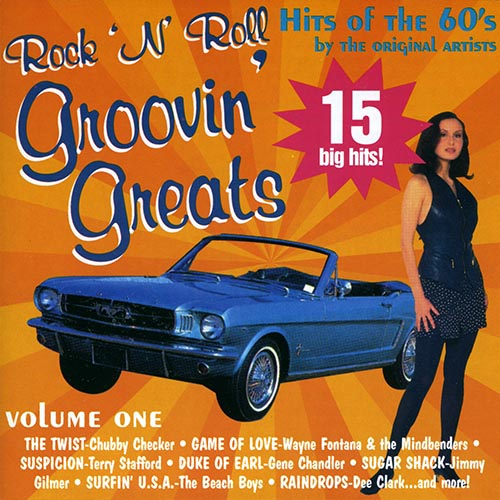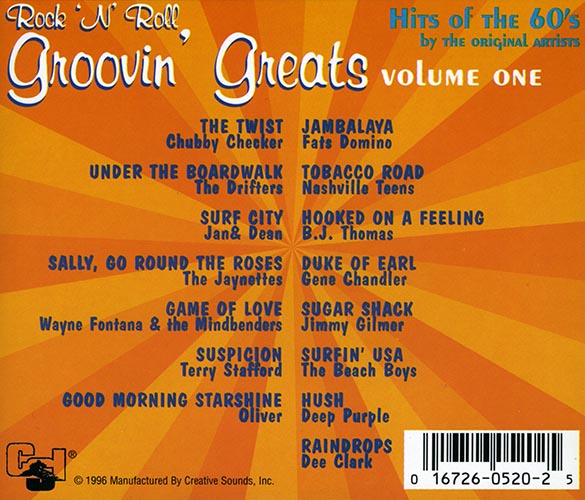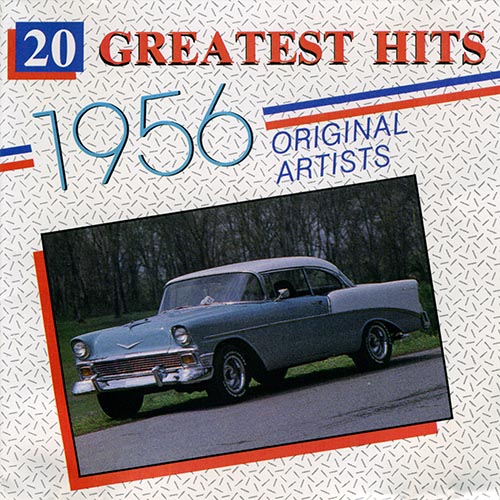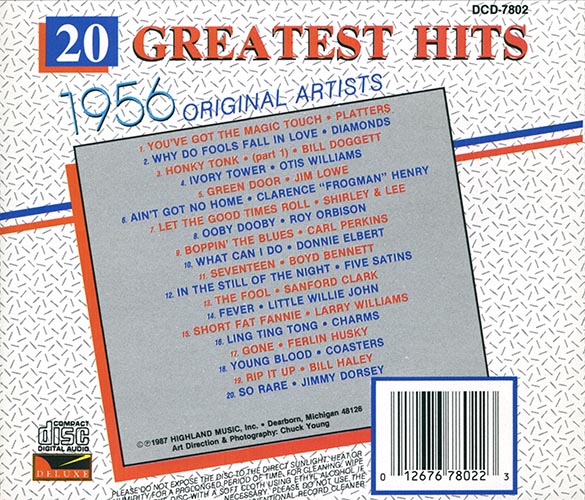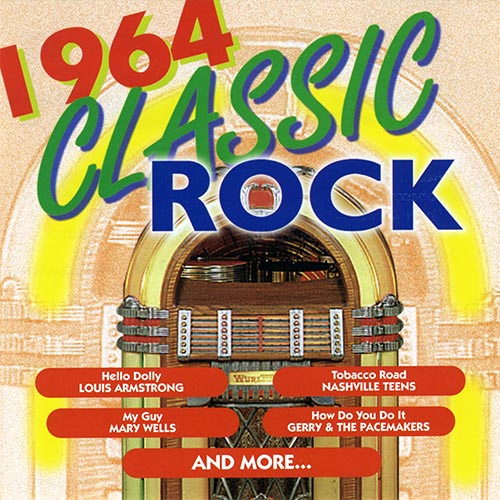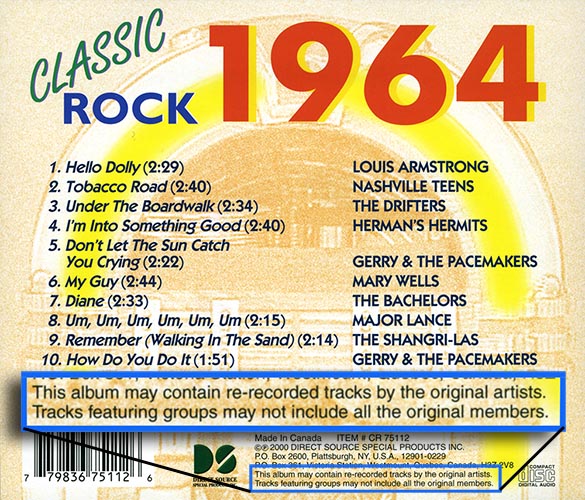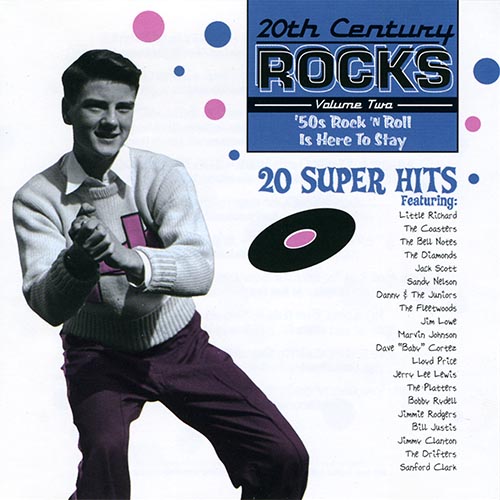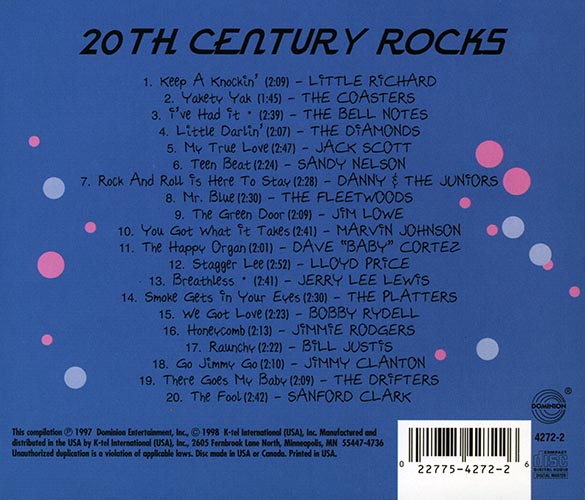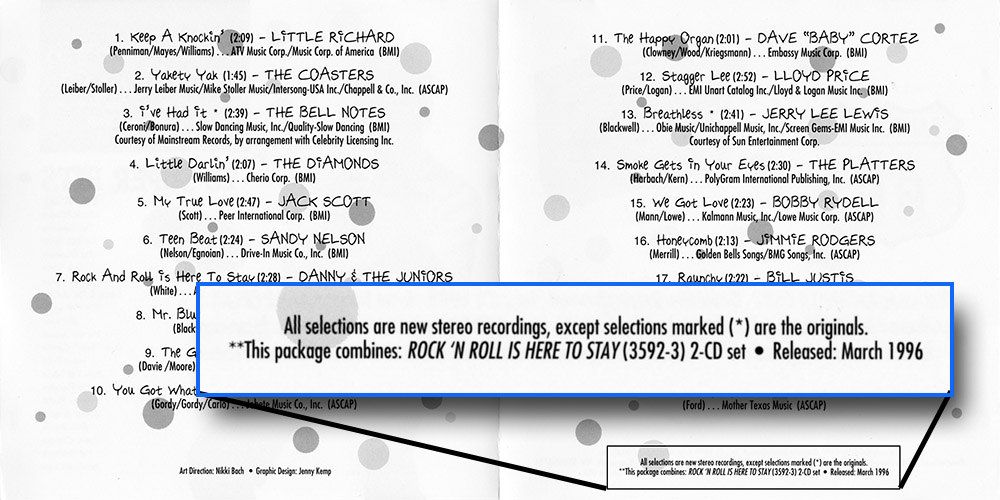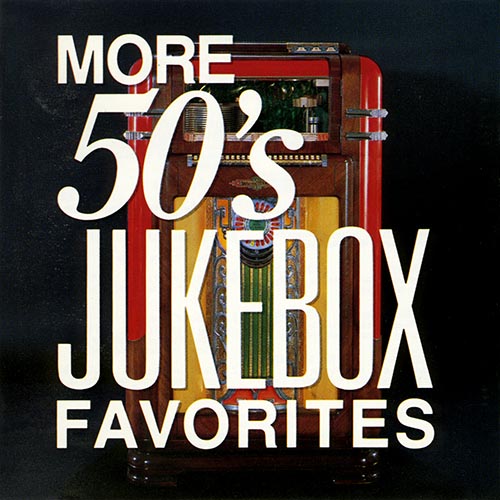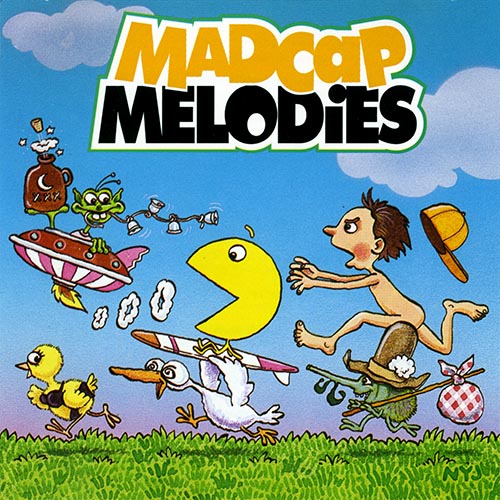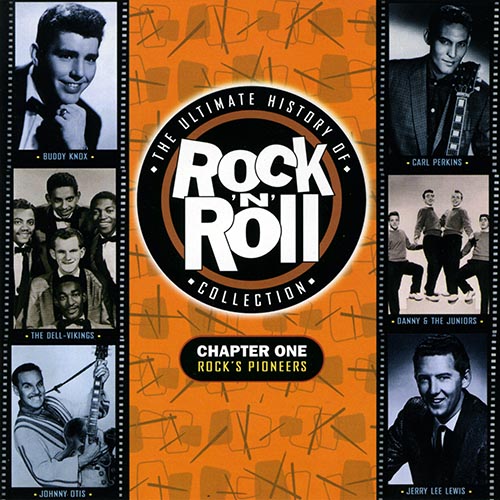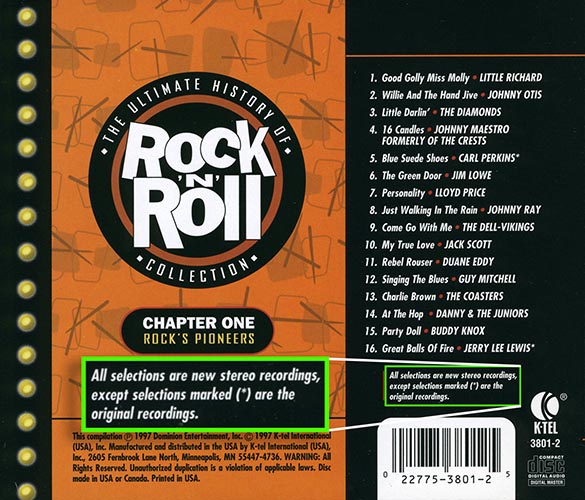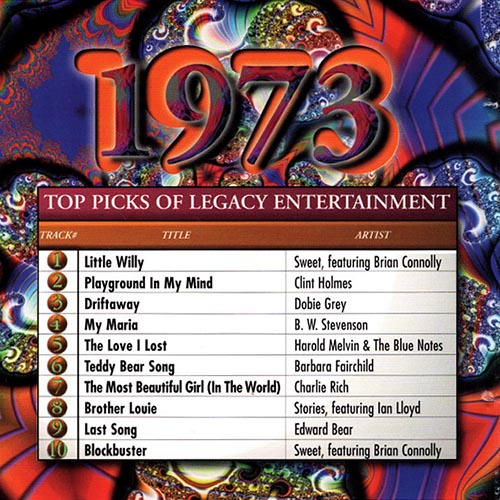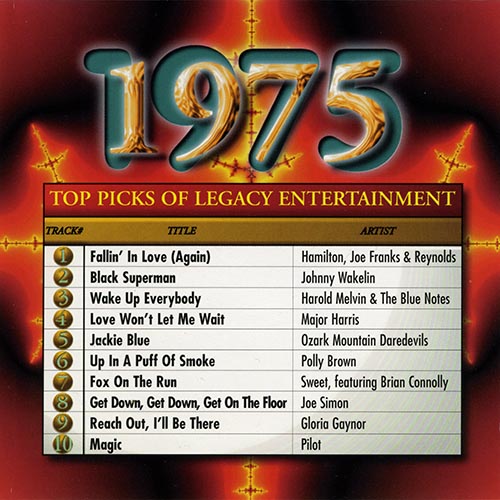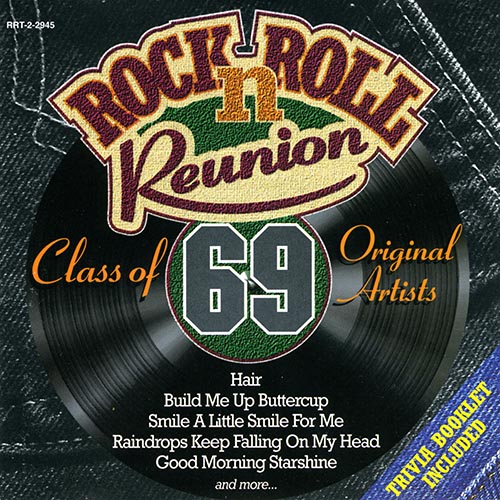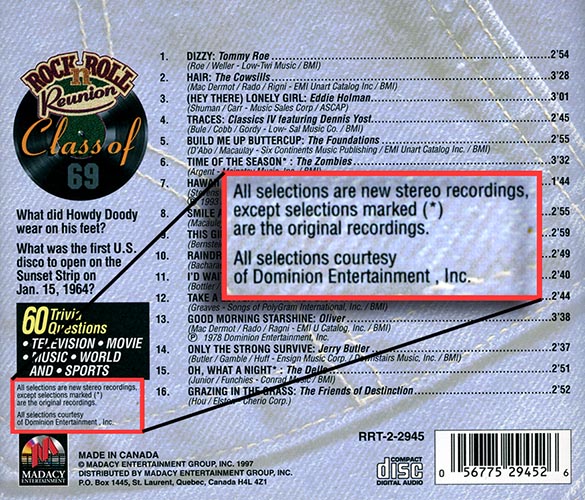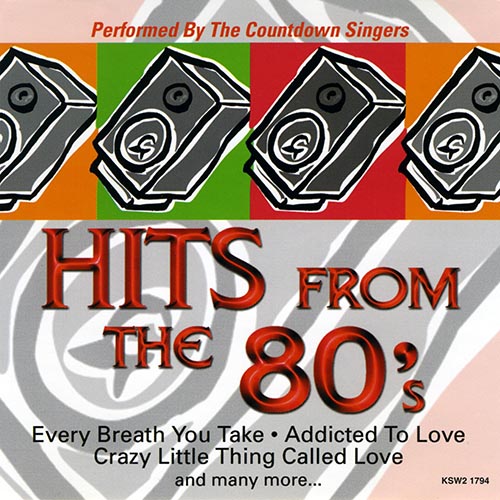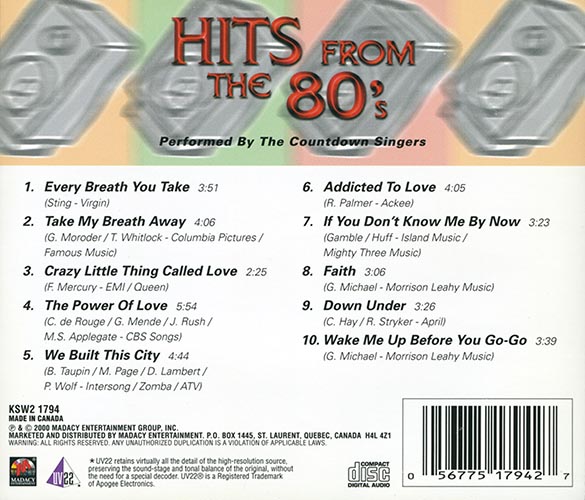Maybe it's happened to you. There's an artist or a song you really like, you come across it on a compilation CD somewhere, excitedly buy the disc, and eagerly pop it into your CD player... only to find that the songs you thought you bought were in fact shadily marketed re-recordings and not the original hits!
In the early years of the compact disc era, there was a shortage of classic recordings available in the new digital format. Early non-classical music adopters were treated to releases by artists such as Billy Joel, ABBA, and Bruce Springsteen, offerings which favored musicians and groups whose fanbases were more currently active as music buyers. Top selling newer releases and current hit albums by more contemporary acts were placed in the release queue ahead of older material and artists, even well established ones (The Beatles famously did not see their first legitimate CD releases until 1987). This lack of older material left a gap in the market which would eventually be filled by labels such as Rhino and Original Sound Entertainment, and eventually by all the major labels, but in the early days, much of that gap would be filled by dishonestly produced collections of "fake" hits marketed as if they were the genuine articles. While this wasn't an entirely new phenomenon by the time of the CD era, it's these compact disc releases that you're the most likely to run across when shopping for music today.
In the 2020s, with so many dumping their CD collections for streaming services, the market for used physical media has never been better. Whereas in the past you were likely to find nothing of real interest in bargain bins and secondhand stores, you are today more likely than ever before to stumble upon greatness for a fantastic price. But before you snag that $1 CD compilation of your favorite oldies or classic rock hits that you find at Half Price Books and go running up to the checkout, heed the words of advice that I'm about to give. A lot of these compilations are dishonest with what they provide, substituting inferior re-recordings, live versions, or (in the very worst cases) subpar performances by completely different groups of musicians for the original hits. I've been collecting music for a long time, and I've learned to spot these items that may not be what they seem.
Trustworthy labels
To begin with, anything that's on a major label such as MCA, Sony Music Special Products, Warner Special Products, etc., is legitimate. You can stop here if that is the case. There are also a large number of labels that specialize in trustworthy reissues:
Original Sound Entertainment*
Polygram Special Products
...and others
In particular, Rhino (all releases) and Time Life (from 1990 onward) come highly recommended. Some of Time Life's earliest rock compilation discs (those issued before 1990) have some audio issues, but they have never failed to feature the original hit recordings and are always well mastered with full dynamic range.
* I would avoid Original Sound Entertainment releases from the 1980s, as the quality of the individual songs ranged from decent quality to poor quality needledrops, even though the songs themselves have always been legitimate. The quality of their releases seems to have greatly improved beginning in the mid '90s.
Things to look out for
When it comes to identifying the dishonest compilations, here are a few things to watch out for:
-
Truncated artist names
Example: "Billy J. Kramer" or "Billy J. Kramer of the Dakotas" being listed on the CD when the original 1960s song credit was to "Billy J. Kramer and the Dakotas." This suggests that the song in question may not be the original recording.
-
Songs denoted as being live, or small print indicating that "some" tracks may be live
Sometimes the manufacturer actually states this on the packaging, perhaps with an asterisk and small print in an inconspicuous place. More often than not, though, these are not identified.
-
For single artist compilations, a cover photo featuring the group members aged well past their prime when they were making hit records
This is a telltale sign that the recordings being presented are not the original ones.
-
Verbiage about achieving the "highest possible sound quality" or referencing "damage" to the original recordings
This is a dead giveaway that some or all tracks have been re-recorded. Note that this does not include "digital remastering," as that is something else entirely.
-
A large number of songs being offered for a suspiciously low price, usually coupled with very attractive box art
See Dominion Entertainment below for the one of the most egregious purveyors of these.
-
A list of well known hit song titles, but without the corresponding recognized artist/performer names
This is likely a "soundalike" record (see "Pickwick Records and other soundalike labels" below).
-
An oldies/classic rock compilation that does not state BOTH "original hits" AND "original artists" on the packaging
Read on to see why this is so important.
Labels to avoid
So, with some general guidelines out of the way, these are some of the main labels to avoid based on my years of experience collecting. Note that in many cases two of these labels will be associated with the same release:
Creative Sounds
Known for: Occasional oldies compilations mixing inferior re-recordings with variable quality originals
Also known for: Gray market CD releases of early Black Sabbath albums, from questionable source material
Creative Sounds may be best known among audiophiles for its series of early Black Sabbath albums issued on cassette and CD, concurrently with the first party Warner Bros. versions. The CDs are notorious for having incorrectly set pre-emphasis flags in their tables of contents, making for an inferior listening experience. These set the stage for a similarly inferior series of oldies compilations mixing actual hit recordings with many truly awful re-recordings. Nowhere on the packaging is it stated that some tracks aren't the originals, but the eagle-eyed may note that the verbiage on the front and back only references the "original
artists." The failure to claim the original
recordings is the sign that these discs are to be avoided.
Of the 15 tracks on this disc, five are re-recordings, one is a live recording, and one sounds like it was taken from a vinyl disc
Deluxe
Known for: Legitimate-looking collections of hits featuring many re-recordings in place of the originals
Deluxe's main claim to fame was a series of compilations on CD, cassette, and vinyl LP from the 1980s entitled 20 Greatest Hits. Each volume spotlights a single year between 1955 and 1969 and claims to feature the "original artists" (note that the discs do not claim to feature the original recordings, which is a telltale sign). These should be avoided, as they were released to capitalize on the (then) lack of availability of oldies on compact disc in the earlier days of the digital era. I still see these from time to time in bargain bins at used music stores.
No indication is given on the packaging that many of the selections are not the original hit recordings
These discs are particularly egregious in that they don't include the "some tracks have been re-recorded" verbiage, choosing instead to present the names of the song titles and artists as if all the selections are legitimate. Many of them actually are, but not all of them, and many of the ones that are legitimate are presented in inferior sound quality. If you don't catch on to the lack of the "original hits" verbiage on the cover, you may end up getting burned.
Direct Source Special Products
Known for: Compilation discs of re-recorded oldies
This Canadian label's offerings are some of those that state they "may" contain re-recorded tracks, so you can't even know if a particular track is a re-recording, a (possibly inferior) live performance, or the genuine hit version (trust me, they are all but certain to be anything but the genuine hits). More upsetting still is the fact that the label was still issuing this crap into the 2000s, when original versions were widely and easily available on other, legitimate compilations. If there's a song you really, really want, you might consider trying to listen to the disc first, but I wouldn't waste my time.
The album "may" contain re-recorded tracks, but we won't tell you for sure
Dominion Entertainment
Known for: Legions of extremely attractive looking compilation discs consisting of 95% re-recorded material
Dominion is one of the most infuriating fake reissue labels I've ever come across. Unlike some compilations from the K-Tel and Madacy labels (discussed below), I have never in my life run across a Dominion-only compilation that featured anything close to a majority of original hit recordings. If you're very lucky, you
might get one or two legitimate tracks on a disc, or in an entire box set. And it's the box sets and large collections that really upset me the most when it comes to this company and its product. These box sets and collections are very attractively designed, boasting colorful artwork, photos, and illustrations, and a design philosophy that screams "high quality" while the actual content being presented is the exact opposite. They've even been advertised and sold in numerous legitimate, above board media to unsuspecting buyers, usually with NO indication given that the included material was anything other than what it appeared to be based on the outward appearance. Who knows how many unwary consumers were hoodwinked by these tactics and threw away their money thinking they were getting the recordings they loved? Do yourself a favor and run a mile from anything with the Dominion logo on it.
There is NO indication anywhere on the outside - front cover or rear tray - that these are not the original hit recordings.
Only on the INSIDE of the booklet is this stated!
Not only does Dominion Entertainment release collections of re-recorded oldies under their own name, they are also the source of re-recordings issued by many other labels, as will be seen below.
K-Tel
Known for: Compilation discs of oldies and classic rock tunes featuring some tracks re-recorded by (often incomplete groups of) original artists decades past their prime
Also known for: 1970s era vinyl compilations consisting of mostly original hit versions of songs
K-Tel is a little different from most of the labels on this list, in that it has issued many collections featuring 100% original recordings. Sometimes these have been issued in conjunction with a major label such as Sony Music Special Products, and sometimes they have been issued solely by K-Tel itself. However, the majority of its solo offerings consist of collections of legit original recordings peppered throughout with re-recorded tracks. Before considering buying any compact disc (or used cassette) released by the K-Tel corporation, you should pay close attention to the packaging. Beware of verbiage on the back tray card indicating that selections are "original recordings," as this is not a guarantee that the selections in question are THE original recordings. It needs to say both that they are the original recordings AND the original artists, and even then I would still preview the disc first. If you are in any doubt about the authenticity of the included material, leave it.
An example of a K-Tel disc with all original hit recordings on it (top), and one with only 7 out of 10 (bottom)
An example of a K-Tel disc with all original hit recordings on it (left), and one with only 7 out of 10 (right)
Another K-Tel disc with extremely attractive artwork, but only 2 of the 16 included tracks are the original recordings
Legacy Entertainment
Known for: Re-recordings of classic songs from the 1970s
Legacy is one of the worst offenders on this list, as it is another one of those labels that don't even bother to identify the illegitimate songs with an asterisk. Their CDs simply say, "some of these tracks have been re-recorded by the original artist or members of the original group." They don't even try to present them as being due to alleged tape damage or a supposed listener-friendly aim of providing a superior sonic experience. With these discs, you can't even tell whether the one song you want the most is a fake or not. It's a roll of the dice, with the dice not loaded in your favor.
It blows my mind that artist re-recordings of hit songs from this late in the rock & roll era are being marketed
Madacy Entertainment
Known for: Re-recordings of classic songs from the '50s, '60s, and '70s
Also known for: DVD compilation box sets of wartime mini-docs, etc., of varying price and quality
Madacy is a Canada-based company that distributes CD and DVD compilations of music and documentary films, respectively. Many of the DVD releases do feature quality material, though often VHS sourced and cheaply packaged. The CD releases should generally be avoided, box sets in particular. Nearly all songs featured on these discs are re-recordings, dressed up in slick and attractive looking packaging and often commanding the same prices as legitimate compilations. Steer clear of anything bearing the Madacy logo when it comes to compact discs,
EXCEPT...
In addition to distributing legions of mediocre re-recordings, Madacy also partners with major record labels such as EMI, Universal Music, Warner Special Products, and MCA to release compilations of classic rock hits, and these are 100% legitimate. So in short, if you see the Madacy logo in conjunction with one of these, you're good. But if not, avoid this label at all costs.
Note that Madacy issues a lot of the same recordings found on the Dominion discs covered above.
At least Madacy has the decency to tell you which songs are actually the original hit recordings amidst the sea of fakes
Pickwick Records and other soundalike labels
Known for: Compilations consisting of mediocre recordings of popular songs by wannabe "soundalike" musicians
Be
very careful with the Pickwick label. Though dissolved in 1983, during the late 1970s and early 1980s it issued a run of compilation albums consisting of recordings of popular hits performed by in-house, "soundalike" bands and musicians. Though some attempt was made to match performance styles with the original recordings, the performances presented on disc were usually half-assed and sometimes featured flubbed lyrics and failed attempts at hitting notes outside the soundalike singers' ranges. These is arguably even worse than re-recordings made by original performers decades past their prime, and these soundalike discs should be avoided at all costs unless you're interested in them for their historical value as cheap imitations or for a laugh. The reason I say to be careful is that in its earlier days, Pickwick was known for its reissues of albums from "name" labels and (prior to that) for some actual "name" artist original releases. These are of course legitimate, but you need to be especially wary when purchasing anything bearing the Pickwick imprint. Do your research first, and be especially careful to hunt for the names of any artists featured to ensure things are actually as they seem. If the song titles - but not the artists' names - are prominently featured, then you should think twice. Buyer beware!
I recommend checking out the Oddity Archive's Record Ripoffs series for many, many examples of these, from Pickwick, T.E.J. Records, and other similar labels.
Identifying "soundalike" records
Unfortunately, compilations of "soundalike" recordings are still a thing today. However, unlike those put out by Pickwick et al in the 1970s, they are nowadays typically performed on synthesizers and drum machines, with a (typically half-assed) vocal performance thrown over them. These collections are even more abysmal than the ones from the 1970s, because the earlier ones at least required performers talented enough to play actual instruments. Modern soundalike albums are generally easy to spot without much trouble as long as you remember to check for the artists' names. Anyone credited will NOT be the people you associate with the included songs. I can spot these from a mile away and have never been suckered into buying any until now, when I purchased the one shown below specifically for this article:
An example of a "soundalike" disc. The original artist names are nowhere to be found on either the front or back of the packaging.
Don't be distracted by an eye-catchingly huge title and text screaming out at you from the above album's cover. The songs are performed not by the original artists, but rather by a gaggle of studio "musicians" collectively referred to as "The Countdown Singers." When buying oldies/classic rock compilations, make sure to check BOTH front and back for the actual artist names. When you see some other "group" being credited (usually in the small print, and often in a far smaller size than what's shown in the example above), save your money for something else.
That's the end of the guide. Happy hunting!
All written material on this page is © 2022 by Peter Orozco. All rights reserved. Use of CD booklet and back tray images is per fair use provisions of U.S. copyright law.
For answers to frequently asked questions see the FAQ page.
This page last updated on 25 November 2022 at 3:54 PM.
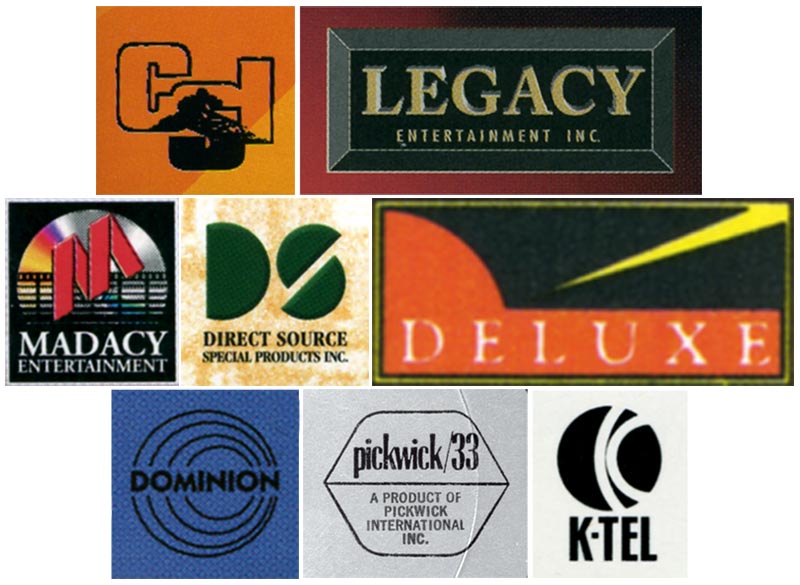 Creative Sounds
Creative Sounds